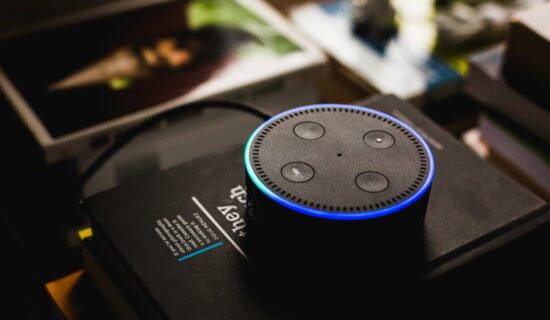The Internet of Things (IoT) is no longer just a technological trend—it is the foundation of digital transformation, encompassing both private life and industry. At the heart of this transformation is mobile computing, which enables instant communication, data processing, and real-time decision-making. In Portugal, as in most European countries, growing interest in IoT solutions goes hand in hand with the development of mobile networks, 5G infrastructure, and cloud platforms. This article explores how mobile computing impacts three key areas of IoT: smart homes, wearable devices, and industrial systems.
Smart Homes: When Technology Serves Comfort
The concept of the “smart home” has already become part of everyday life. Controlling lighting, climate, security systems, and appliances via smartphone is not just possible—it is accessible. Mobile computing plays a crucial role by enabling the processing of sensor signals, decision-making, and command transmission without delay.
Modern devices such as smart speakers, thermostats, or video intercoms constantly exchange data with cloud servers. Control is handled through mobile applications, while machine learning algorithms analyze residents’ behavior to offer personalized scenarios. For example, if the homeowner returns home at the same time each day, the system can automatically turn on heating and lighting based on that routine.
In Portugal, smart home solutions are growing particularly popular in large cities like Lisbon and Porto. Here, automation is important, but energy efficiency is equally crucial. Companies working in the field of green technologies are integrating IoT sensors with solar panels and smart energy consumption systems, significantly reducing costs.
Wearable Devices: Health Under Control
Wearable electronics are among the most vivid examples of IoT in everyday life. Smartwatches, fitness trackers, and medical devices today not only collect data but also process it actively through mobile computing modules. This allows users to track heart rate, oxygen levels, sleep quality, and other health metrics in real time.
Thanks to their connection with smartphones and cloud services, wearables provide not just raw data but useful analytical reports. Some models can already warn of potential health issues and suggest preventive actions. For instance, if a smartwatch detects irregular heart rhythms, it can notify not only the user but also their doctor.
In Portugal, public and private clinics are increasingly adopting IoT solutions for remote patient monitoring, especially in rural areas where access to healthcare facilities is limited. This practice reduces the burden on doctors and improves the overall quality of care.
Industrial Solutions: Reliability, Safety, and Efficiency
In the industrial sector, mobile computing combined with IoT is opening entirely new horizons. This is the essence of the so-called “Industry 4.0” concept, where factories, warehouses, and transportation networks become smart and self-managing.
Sensors installed on industrial equipment continuously transmit data on temperature, vibrations, wear levels, and other parameters. Mobile computing devices—whether industrial tablets, wearable scanners, or embedded microcontrollers—analyze this information locally or via cloud connections. If anomalies are detected, the system can automatically shut down a machine, start diagnostics, or alert an engineer.
Companies in Portugal, especially in logistics, textiles, and the food industry, are increasingly implementing IoT to track inventory, control quality, and optimize delivery routes. In a highly competitive environment, such solutions offer a clear advantage by reducing costs and increasing operational accuracy.
The Future of Mobile Computing in IoT: Where the Technology is Heading
With each passing year, mobile computing becomes more autonomous and intelligent. The rise of 5G and emerging trends like edge computing allows for processing large volumes of data on-site, without needing to send it to the cloud. This is especially critical in systems like smart cities, where even a second of delay can affect safety.
For Portugal, the development of IoT and mobile computing is becoming part of the national digitalization strategy. Government initiatives to support startups and infrastructure development programs are creating fertile ground for innovation. Today, universities and research centers in the country are already developing solutions in smart agriculture, transport, and healthcare.
The Internet of Things, combined with mobile computing, is shaping a new digital landscape—flexible, personalized, and highly efficient. For Portuguese users, from everyday consumers to large industrial companies, this is not just technological progress but an opportunity to rethink comfort, health, and business. And this is just the beginning.


